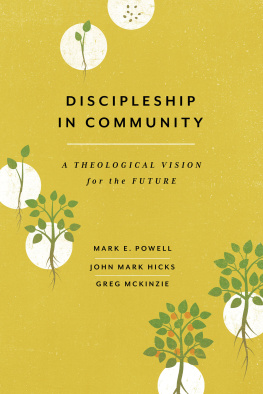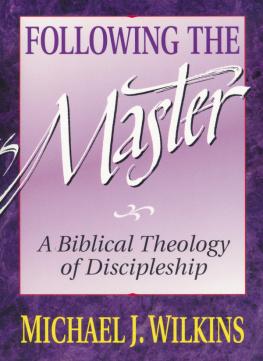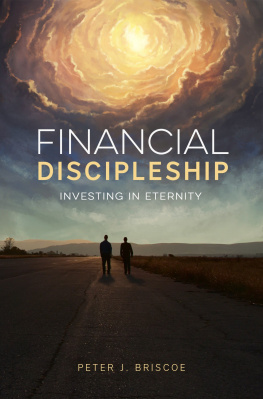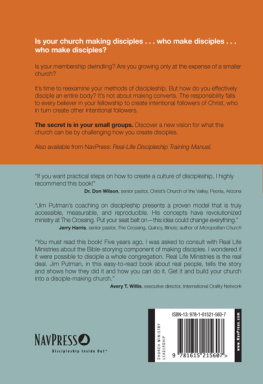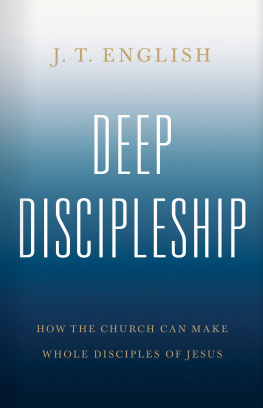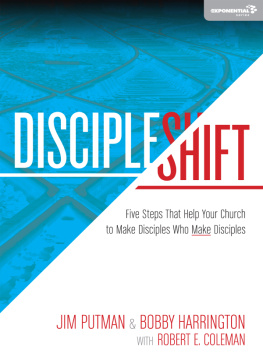I n Discipleship in Community, the reader finds that Powell, Hicks, and McKinzie have put together an extensive selection of theological goods, each worthy of close and ongoing attention. The assortment is so far-reaching and attention-worthy, in fact, that it is hard to settle on a starting place in responding to the project as a whole. Perhaps it is easiest to begin by saying what I find most promising about itits situating the Stone-Campbell tradition in fruitful relation with the so-called Great Tradition of Christian thought. Rather than consigning the former to its sectarian impulses, or endeavoring simply to translate classical orthodoxy to Restorationists, Powell, Hicks, and McKinzie establish an interchange between the Stone-Campbell heritage and wider Christian orthodoxy, thereby enhancing the doctrinal focal points under consideration. Happily, then, though this book will most naturally draw notice from readers with vested interest in the Churches of Christ, it could be very useful to persons of any background. This is, to my mind, the best sort of ecumenical strategy: the sort wherein thinkers appreciatively engage adjoining belief systems without apologizing for their own particularity (i.e., for their denominational inheritance and formation) but, rather, exhibit readiness both to critique that heritage and to celebrate the assets illumined there when set in conversation with neighboring thought.
On following Powell, Hicks, and McKinzies various ecumenical excursions in these chapters, I was happy not only to be reminded of features of the Stone-Campbell tradition worth retaining (particularly when augmented by insights drawn from classic Christian thought), but also to discover some of those features for the first time. Among those new to me were Alexander Campbells Trinitarian commitments, examined in builds a convincing case that the doctrine of the Trinity actually safeguards the devotion to biblical belief so valued by Churches of Christ, rather than enticing Scripture readers into needless abstraction and conjecture.
There are such gems to be found in all the chapters that follow. For instance, highlights the creation-affirming features of Campbells and Lipscombs eschatological positions, which are then set in relation to Eastern Orthodox understandings of salvation. The outcome is a biblically rooted view of evangelical discipleship as entailing not only evangelism in the limited sense (of convert-making) but more so a living into the human vocation of cocreating with God, which includes the eschatological drive toward social transformation as well as the care, enjoyment, and protection of the creation.
is also intriguing in its appraising Church of Christ members historic desires to be a people of the Book, to pursue unity without downplaying Scriptures importance, and to embrace congregational interpretation. This chapter demonstrates how, when bankrupt strategies of legalist interpretation are replaced by theological approaches to understanding Scripture, those traditional Church of Christ commitments represent attractive alternatives to the pervasive textlessness, apathy, and violent discourse in contemporary Western culture. It is also worth noting that this transfigured hermeneutic emboldens the local congregations freedom to submit to the Bible over against institutional determinations without driving toward anti-institutionalismanother siren song of the contemporary West. The liberty championed here is not a foolhardy freedom from each other, from the past, or from institutional arrangements; rather, it is a liberty afforded by learning to live with each other, a freedom not to reject traditions that cohere with the text (emphasis mine). Relatedly, the impetus is not toward a naive, antiintellectualist insistence on the self-interpreting nature of the biblical text. Granted, the interpretive trajectory is, at heart, populist (it embraces the value of each congregants engagement with Scripture). Nevertheless, by recognizing that the text does not self-interpret, it welcomes the help that careful scholarship can afford the communitys interpretive efforts. In short, hierarches of responsibility are necessary within functional communities. But this vision of church governance is not one that supports top-down authoritarianism; rather, it endorses the servant-leaders charge to equip every member for participation in Gods mission.
On all accounts, Powell, Hicks, and McKinzie believe that the church is called to read the text and world through the spectacles of the Trinitarian Gods storya story codified in the creedal language of the Great Tradition and properly taken up in the mode of charitable conversation in community. They believe that when the interpretive process is undertaken in this fashion, Scripture draws us into Gods mission through the power of the Spirit, thereby providing us with imaginations transformed for the sake of carrying out the work of God. Namely, this renovated imagination equips the church to practice theological discernment for its ongoing participation in Gods mission, where that participation is improvised in its polity, ethics, worship, and public communication, and where that discernment is always concretely communal, integrating all members diverse gifts for moving toward the redeemed communitys missional telos.
Of course, this all sounds wonderfuland I hope that most of us can think of particular instances where we have seen something like this process actually born out. But, given how rare those instances are, one might also wonder how likely it is that we can consistently live out this vision of the local congregation: a community wherein all members submit to each other as they embrace Scripture as provocateur and equipper, whereby they find the Holy Spirit transforming their collective vision through critical self-reflection and ongoing recontextualization while simultaneously illumining the substantive essentials needed for entering into mission in confidence and unity. If it is this straightforward, why do so many Christian communities experience internal discord so much of the time? Or, perhaps it is not so straightforwardperhaps the myth of biblical perspicuity still allures us when we muse over the metanarratives power to draft us into Gods drama and transform our imaginations.
We find ourselves in a difficult position. On the one hand, it seems that we must believe our collective dwelling with the Word can produce a sensibility that supports faithful improvisation in the unscripted situation. (We must believe it, that is, if we intend to go on giving credence to the corporate sanctification attested in 2 Corinthians 2:15 and to Scriptures role averred in 2 Timothy 3:1617.) On the other hand, we would only be fooling ourselves if we do not remain uncomfortably aware of how messy our improvisational efforts tend to be. To come to terms with this, one only needs to try to offer an account of how eschatological expectationdefined here as the sensibility that gives direction to and motivation for a life of discipleship in the presentshould speak into interecclesial conflicts concerning the churchs stance on poverty, political partisanship, women in ministry, or same-sex marriage. In such instances, we quickly come face-to-face with the fact that listen[ing] to each other without marginalizing some or ceding responsibility to a few can be a supremely difficult task. And the proper way forward is not necessarily illumined by the lights of the Great Traditionafter all, the various liberation theologies have taught us nothing if not that sanctioned church teaching can be deaf to the voices of those on the social and political margins.

